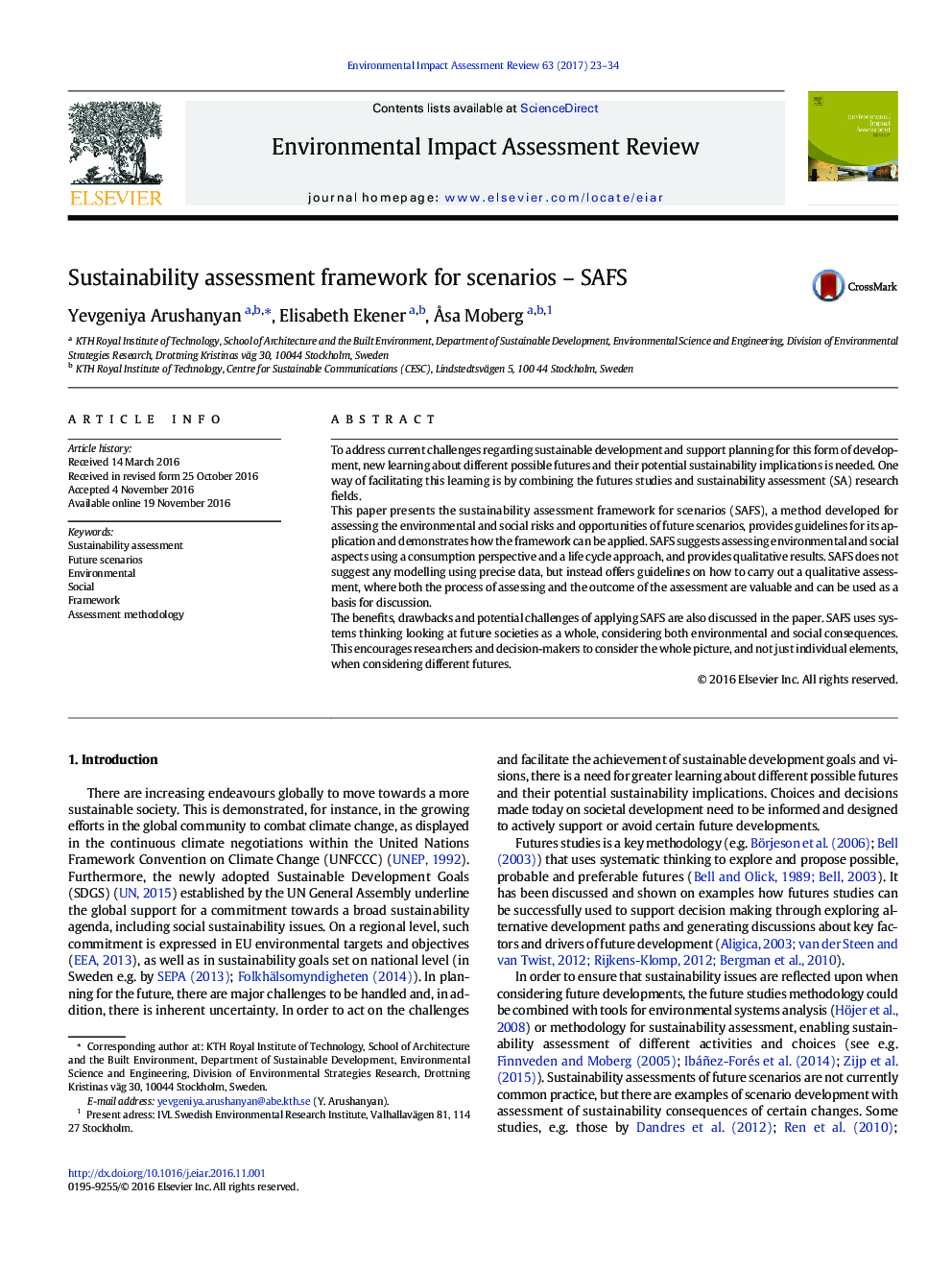| Article ID | Journal | Published Year | Pages | File Type |
|---|---|---|---|---|
| 5115660 | Environmental Impact Assessment Review | 2017 | 12 Pages |
â¢The paper presents a new methodological framework for qualitative sustainability assessment of future scenarios with transformative changes.â¢The framework suggests qualitative assessment with consumption perspective and a life cycle approach.â¢The paper presents the framework and provides guidelines for its application.â¢The paper demonstrates on an example how the framework can be applied.â¢The benefits, drawbacks and challenges of the framework application and the need for further development are discussed.
To address current challenges regarding sustainable development and support planning for this form of development, new learning about different possible futures and their potential sustainability implications is needed. One way of facilitating this learning is by combining the futures studies and sustainability assessment (SA) research fields.This paper presents the sustainability assessment framework for scenarios (SAFS), a method developed for assessing the environmental and social risks and opportunities of future scenarios, provides guidelines for its application and demonstrates how the framework can be applied. SAFS suggests assessing environmental and social aspects using a consumption perspective and a life cycle approach, and provides qualitative results. SAFS does not suggest any modelling using precise data, but instead offers guidelines on how to carry out a qualitative assessment, where both the process of assessing and the outcome of the assessment are valuable and can be used as a basis for discussion.The benefits, drawbacks and potential challenges of applying SAFS are also discussed in the paper. SAFS uses systems thinking looking at future societies as a whole, considering both environmental and social consequences. This encourages researchers and decision-makers to consider the whole picture, and not just individual elements, when considering different futures.
